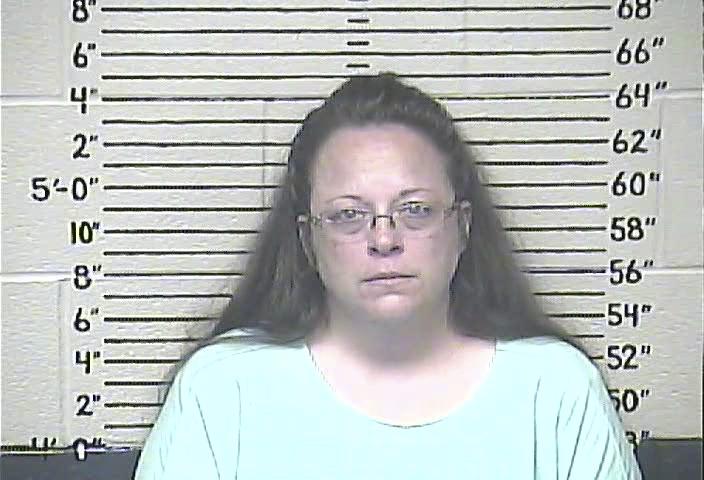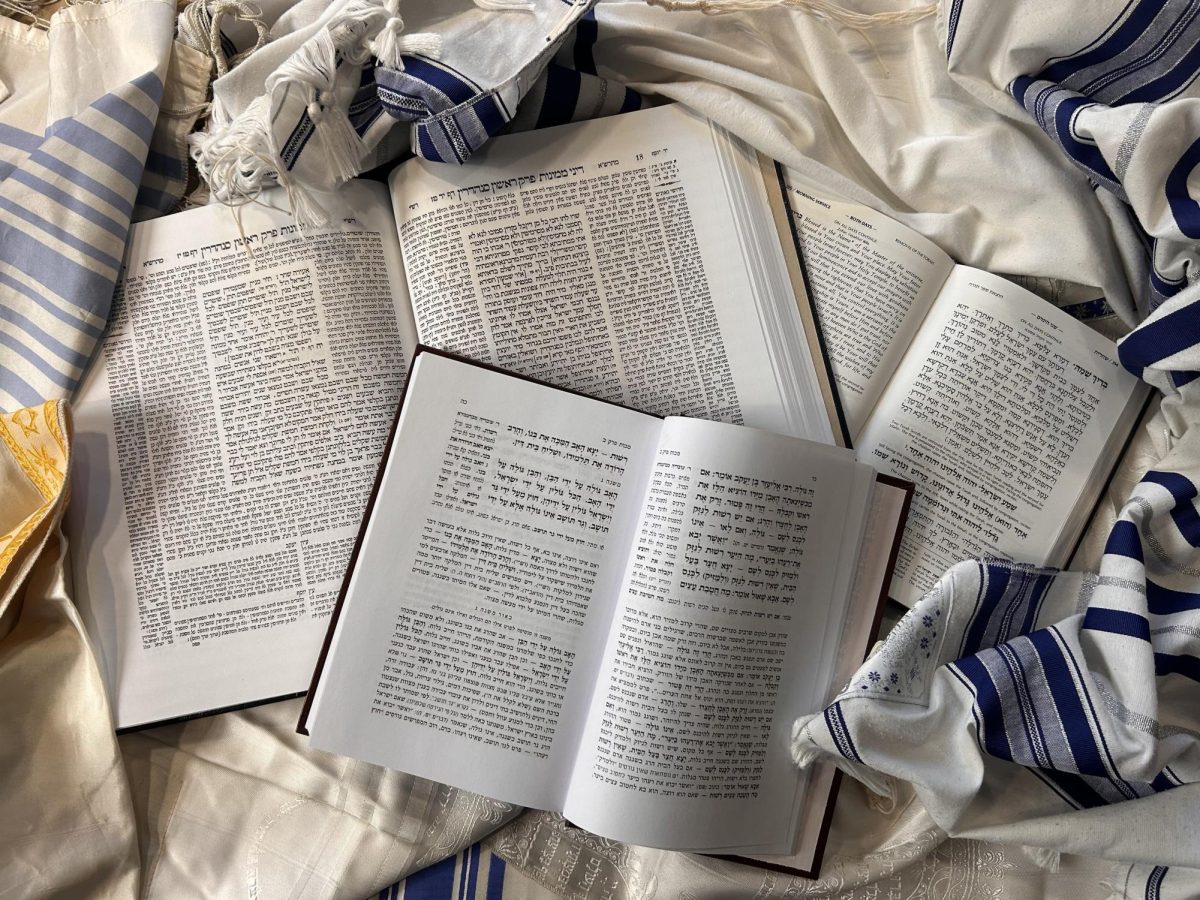For a small town county clerk, Kim Davis has been causing a lot of ruckus. Her refusal to issue marriage licenses to same-sex couples at the Rowan County Clerk of Court has been making headlines nationwide. After defying the U.S Federal Court Order to grant the marriage licenses, claiming that she was acting “under God’s authority,” Davis was imprisoned for contempt of court. After five days, she was released from custody, under the condition that she would not stop any of her deputies from issuing marriage licenses to any and all eligible couples.
There is a spectrum of opinions regarding what transpired with Davis. Along with outraged outcries for LGBTQ rights and taglines like “Kim Davis is no Rosa Parks,” many acclamatory hashtags have been floating around twitter, such as #MLKim and #KimForPresident. Davis’ supporters have turned her into a martyr for religious freedom, and she has even been championed by public figures such as Republican presidential candidate Mike Huckabee. Huckabee, his followers, and many other people view Davis as having been victimized and persecuted by the government for upholding her religious beliefs. For many others, however, Davis is no victim; she is a discriminatory official depriving citizens of their natural-born right to marry whomever they wish. Even for some social conservatives, regardless of their personal or religious beliefs, Davis is in the wrong for evading her duties as an elected government official and disobeying the laws of the land, hence her being jailed for contempt of court.
What do the Rabbis Have to Say?
The media has thoroughly covered Davis’ story. However, there is one aspect that has yet to be speculated upon thus far. What does Jewish halakha, rabbinic tradition, have to say about Davis’ actions and her resulting incarceration? Just as there are a variety of conflicting responses by the secular public, so too, rabbis love to have a say on such controversial issues. The two conflicting ideas needing to be addressed here are:
- The ability for freedom of religious practice and expression in legal work (Davis’ desire to abstain from issuing marriage licenses to gay couples).
- The Talmudic dictum of Dina d’Malchuta Dina, the law of the land in which we reside is the law, period. (Supreme Court of the United States’ (SCOTUS) decision that same-sex couples can legally marry in all 50 states).
These two things coming into conflict is no anomaly. Rabbi David Glickman of Congregation Beth Shalom in Overland Park, Ks. brings an example where the Talmudic dictum of Dina d’Malchuta Dina overrides performing a mitzvah. When a Jewish girl and boy are over the age of mitzvah, one could argue that it is a religious rite for them to drink alcohol on Purim. However, in accordance with the U.S law, Glickman makes it a policy to not serve Jewish adults who are under age 21.
There tends to be more breathing room for refraining from the performance of a mitzvah than there is for violating Jewish law, which, according to some peoples’ interpretation of the Torah, gay marriage does. However, Glickman argues that a person still has no right to “undermine the mechanisms of the state to do its job — which is to get all people legally married that the Supreme Court says can get married.”
This does not mean that Davis should be forced to sacrifice what she feels is her religious integrity for the sake of keeping the precept of Dina d’malchuta Dina intact. Glickman adds that it “is within Ms. Davis’ right to refuse to personally issue same-sex marriage licenses if she feels it is against her religion. However…she also has an obligation to communicate with her superior so that her superior can make reasonable accommodation so that there is someone else on staff who can issue those licenses without any glitch in service to the citizens of that state/county.” This thought was echoed by Republican presidential nominee Jeb Bush, who stated that there ought to be “accommodations for Kim Davis’ faith,” and “common ground” where Davis can both “act on her conscience and — now that the law is the law of the land — for a gay couple to be married.”
According to Hyman Brand Hebrew Academy’s Head of Jewish Studies, Rabbi Avi Weinstein, the Torah takes precedence over Dina d’Malchuta Dina. He provides the instance where “if the U.S. decided to make circumcision illegal, [he] would be impelled to break the law because [his] first allegiance would be to the Torah, and only secondarily, the law of the land.” However, this is not such an extreme situation because “in this case, she has another remedy—she can quit”.
Weinstein and Glickman are in agreement that Davis was rightfully imprisoned, for she was clearly in contempt of a court order.
Though Rabbi Neal Schuster, Rabbi/Senior Jewish Educator at University of Kansas Hillel, agrees that Davis should not have interfered with the issuing of marriage licenses to same-sex couples, he takes a different stance on her imprisonment. It is Schuster’s belief that “It was a foolish move on the part of the judge because it turned her, predictably, into a martyr/hero for her cause. It was also a foolish move because imprisoning someone for civil contempt is excessive – the judge jumped to the most extreme type of force available at his disposal. As others have suggested, it would have made more sense to remove her from office for violating her oath and given the authority to issue licenses to someone else.”
To argue his case that Davis should not have interfered with the issuing of licenses, Rabbi Schuster considers the question of whether or not a physician can refuse to provide medical service to a person in need (if this is not a case of pikuach nefesh, or saving a life). Schuster explains, “The short answer is, yes…but only if there is another physician available to provide the service. If no other physician is available, the refusing doctor is compelled to see to the patient.”
“To be sure,” Schuster continues, “Kim Davis is no doctor, and a marriage license is not a medical need, but the principle can be extended to argue that she did have the right to refuse service, but only if someone else was available to provide the service in her place. By preventing others from fulfilling the essential function that she was refusing to do, she was going beyond standing by her beliefs; she was imposing her beliefs on others through the use of force. She is being hailed as brave, but if she were truly brave, she would have resigned from her position rather. Instead of violating her beliefs about marriage (to which I firmly believe she is entitled), she chose to violate the integrity of her office and the oath she took upon assuming it.”
Clearly, this is a multi-faceted issue with many diverse halakhic opinions. The consensus seems to be that Davis is entitled to her religious beliefs as much as anyone, but that there were steps she could have taken to act on her conscience while allowing others to grant gay couples their marriage licenses; She could have resigned, or better yet, she could have spoken to her superiors about allowing her deputies to administer the licenses in her place. Ultimately, the law of the land is the law, and when the option exists to both be a law-abiding citizen and to adhere to whatever religious convictions one has, then that is the clear choice.










































































